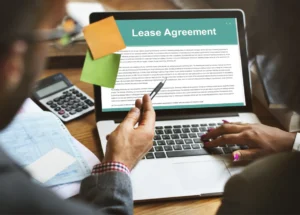What to Know Before Investing in Real Estate
Learn the Basics of Real Estate Investing Before Buying Your First Property
Though some people have made quick riches from real estate without much knowledge about investing, others do their homework before committing their finances to the undertaking. Real estate can be profitable when people have the knowledge to make wise investments.
Evaluating Whether to Buy Properties
 Consider the time it takes to find the right property in which to invest. Then, learn evaluation techniques to determine the suitability of properties for your investment portfolio. Typically, prospective investors visit the properties, research neighborhoods and pay close attention to the data provided in comparative market analyses (CMA). Finally, get the calculation tools necessary to compare properties and determine their profit potential.
Consider the time it takes to find the right property in which to invest. Then, learn evaluation techniques to determine the suitability of properties for your investment portfolio. Typically, prospective investors visit the properties, research neighborhoods and pay close attention to the data provided in comparative market analyses (CMA). Finally, get the calculation tools necessary to compare properties and determine their profit potential.
Understand the Ways to Profit From Real Estate Investment
Cash flow is an important factor when it comes to selecting real estate investments, but there are other benefits to owning real estate that can influence the properties you choose. Typically, investors weigh the amount of profit they’ll earn from fixing up investment properties and selling them – known as flipping – versus renting them out. They also weigh their annual income against the properties’ inherent decreasing values to determine how much they owe in taxes.
Know the Pitfalls of Leverage
Buying property with little or no down payment is an appealing prospect, but there are major pitfalls to this strategy. Leverage is borrowing because an investor does not have on enough cash available to acquire an asset. Mortgages are ways investors can acquire investment properties with little or no cash. Some real estate investors use non-bank financing as leverage to buy property. Though leverage can increase the amount of property an investor can purchase – for example, leverage might help an investor buy two properties instead of one – savvy investors don’t use debt without understanding the risks.
Mortgage: A Major Factor in Profitability
Understanding the types of mortgages available and the benefits of each, as well as the risks, is critical to your real estate investment success. Investors typically must have 20 percent of a property’s sale price to qualify for an investor mortgage. Investors should shop around to find mortgages that offer favorable interest rates and proceed with caution when it comes to zero down, adjustable rate, and balloon investment mortgage types. There are many options for investors and each should be weighed carefully.
Should You Be a Landlord?
Assess your skills and temperament to decide if you’re cut out to be a landlord. In addition to keeping your investment properties occupied, as a landlord, you’ll need to be available 24 hours a day, seven days a week to address problems as they arise. As a real estate investor, you have the option of hiring a property manager to handle the day-to-day business operations.
Get a Free Multifamily Loan Quote
Access Non-Recourse, 10+ Year Fixed, 30-Year Amortization
Vacancy Risk
As a landlord, you also have vacancy risk whereby you can’t find a renter for a period of time. You must have enough savings or cash to continue paying the mortgage and upkeep for the property during times with there’s no rental income being paid to you. When considering the costs of owning a property, you must factor in a couple of months of vacancy per year where the unit or property won’t be rented. As a result, you’ll need to have enough cash to handle the times when rental income from the property stops due to any vacancies.
It’s a Marathon and Not a Sprint
Initially, a rental property won’t turn a profit since your rental income will go to paying the mortgage, expenses, property taxes, and upkeep. However, over the years as the mortgage gets paid off, you’ll have a positive cash flow that can generate monthly income. If you’re thinking of buying property for rental income, you’ll need to take a long-term view on the investment.
Diversifies Your Income Stream
According to Bradley Clark, CFP® of Clark Asset Management, the income from investment properties can be anywhere from 6% to 8% per year.
Rental income can serve as a way of diversifying your income from stocks and bonds. If the equity markets go into a correction or downturn, your rental income will be unaffected. Of course, a landlord would be impacted by any changes in the housing market or the overall economy. During a recession, you might find it difficult to find a renter or your existing tenants may not be able to pay the rent due to loss of income from unemployment.
When investing in real estate, it’s important to weigh all the factors that could determine whether your investment earns a profit or not including the location, the neighborhood, your financial situation, taxes, leverage, rental incomes in the area, the quality of the property, and whether you’re ready to make such a sizable investment.
Source: liveaboutdotcom













 Accessibility
Accessibility